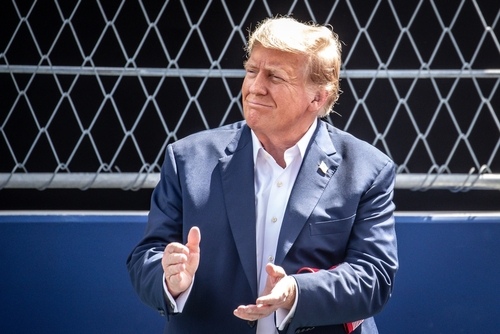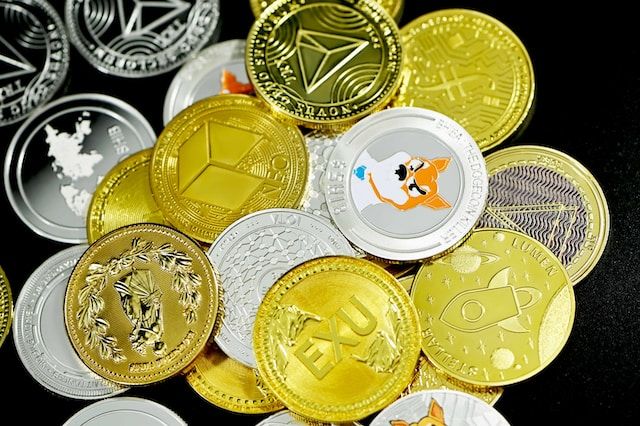Donald Trump celebrates Bitcoin whitepaper’s 16th anniversary, makes new promises

Donald Trump jumped into Bitcoin whitepaper’s 16th anniversary with a direct message to Bitcoin supporters on X. He wrote:
“I would like to wish our great Bitcoiners a Happy 16th Anniversary of Satoshi’s White Paper. We will end Kamala’s war on crypto, & Bitcoin will be MADE IN THE USA! VOTE TRUMP! #Bitcoin #FreeRossDayOne.”
The Bitcoin whitepaper
On October 31, 2008, Satoshi Nakamoto released Bitcoin’s whitepaper, “Bitcoin: A Peer-to-Peer Electronic Cash System.” This document laid out the foundation for Bitcoin and introduced the world to a currency that doesn’t rely on banks or central authorities.
Bitcoin’s unique solution to the “double-spending problem” — preventing the same currency from being spent twice — was a game changer.
Nakamoto’s answer was a public ledger, the blockchain, where every transaction is recorded, timestamped, and secured by network nodes solving cryptographic puzzles.
Nakamoto’s approach allowed Bitcoin to exist without banks, central servers, or any controlling entity. This whitepaper outlined three main ideas. First, decentralization—Bitcoin operates peer-to-peer, so users transact directly with each other.
Second, proof of work—miners compete to validate transactions, securing the network and earning Bitcoin rewards. Third, timestamping—every transaction links to the previous, making an unalterable chain. Nakamoto saw traditional banking as flawed and believed Bitcoin could replace it.
“The root problem with conventional currency is all the trust that’s required to make it work,” Nakamoto wrote, pointing out the risks in centralized financial systems.
Bitcoin historian Pete Rizzo, noting the anniversary, even called it “the perfect day to start the next bull run” for Bitcoin. Currently priced at $72,000, Bitcoin has had its ups and downs but stands as a significant force in the contemporary financial world.
Bitcoin’s development and early days
After the whitepaper, Nakamoto started working on the Bitcoin software in 2007. In August 2008, he registered the domain bitcoin.org, and by January 9, 2009, the first version of Bitcoin software was live.
Nakamoto mined the “genesis block”—block 0—which included a message referencing a news headline on bank bailouts, hinting at his critique of traditional finance. This block remains a historic part of Bitcoin’s creation, symbolizing its stand against centralized finance.
From 2009 to 2010, Nakamoto worked actively with developers, communicating mostly by email and forums. By late 2010, he stopped participating in Bitcoin’s development, saying he had “moved on to other things.” Since then, no one has heard from him.
Some speculate Nakamoto was a single person, while others suggest it was a group. Either way, the impact of his work has been massive. Theories about Nakamoto’s identity have floated around for years.
Cryptographer Hal Finney received the first-ever Bitcoin transaction from Nakamoto, making him a possible candidate. Nick Szabo, known for “bit gold,” an early concept similar to Bitcoin, is another possibility.
Others have speculated about Dorian Nakamoto, a Japanese-American who denies any involvement, and Craig Wright, an Australian who claims to be Satoshi but lost a court case in 2024, with a UK judge ruling against his claim. The ongoing mystery only fuels Bitcoin’s mystique.
Nakamoto’s use of British English in his writing leads some to believe he might be from the UK or the US rather than Japan. The intrigue around his identity, along with the whitepaper’s anniversary, keeps interest in Bitcoin high among fans and investors alike.
Nakamoto’s estimated Bitcoin stash is between 750,000 and 1.1 million coins, worth over $70 billion today. These coins have never been moved since he mined them, adding to his legend. If Nakamoto is alive, he’s among the wealthiest people globally.
This untouched fortune aligns with Bitcoin’s ethos—decentralized and leaderless. By stepping back, Nakamoto was making sure that Bitcoin would operate as a true open-source project, free from any single authority.








